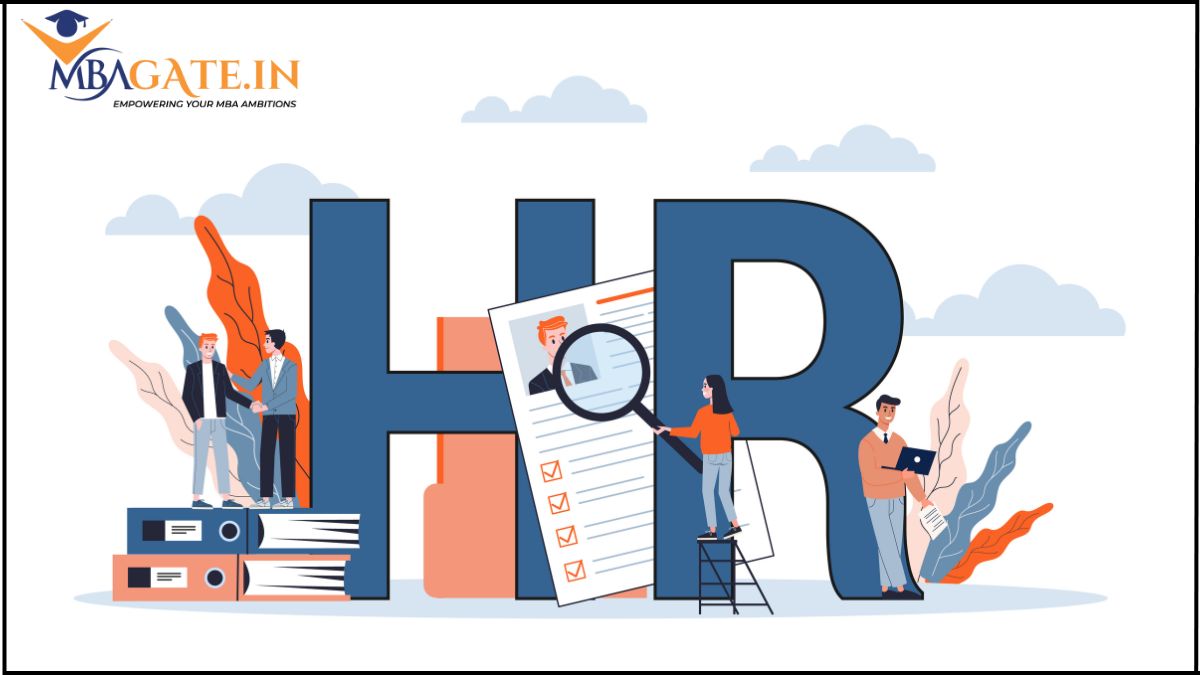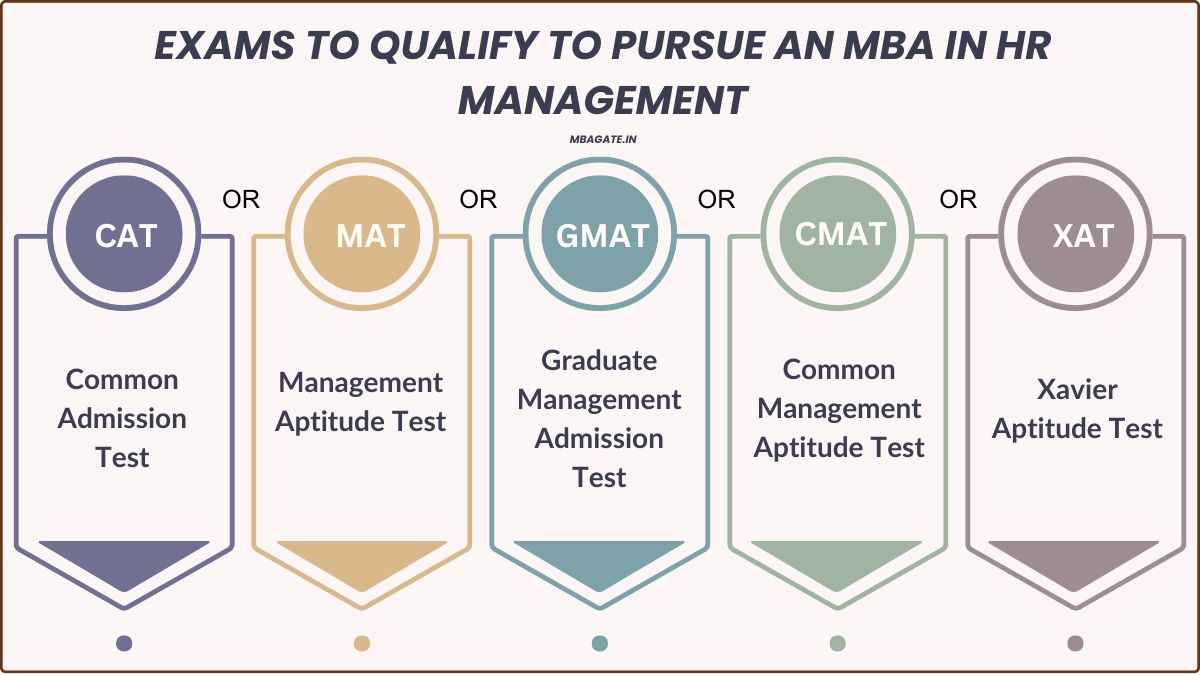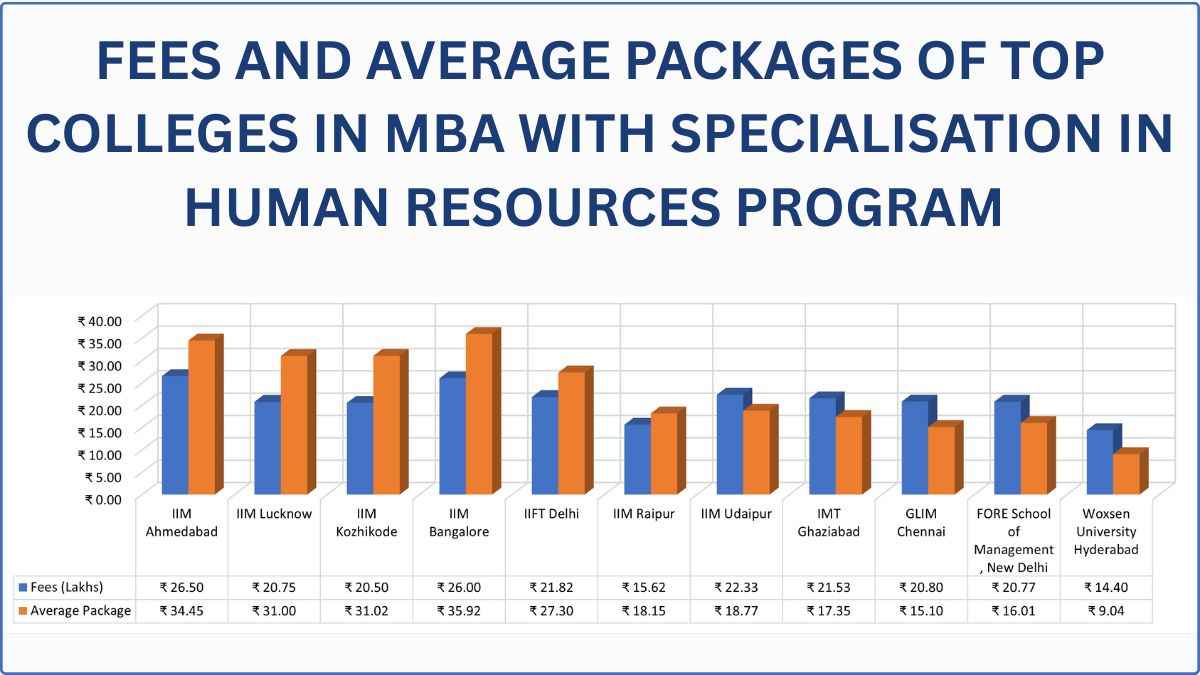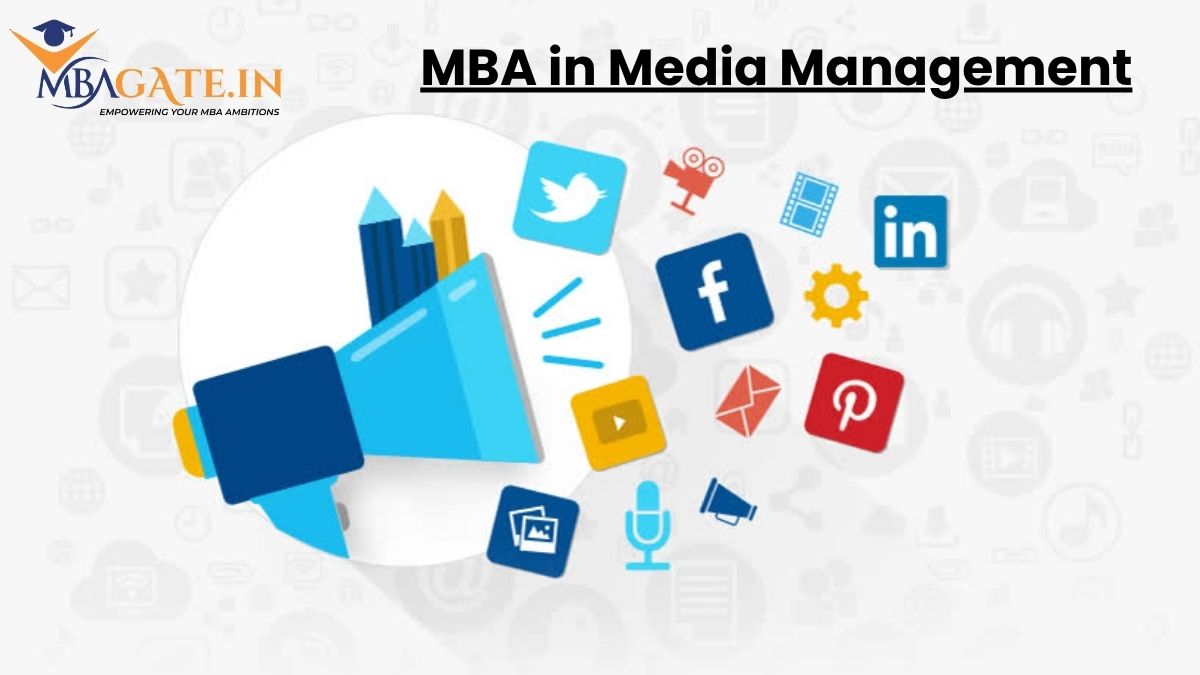MBA in HR Management – Course Details, Syllabus, Salary, Career Scope and More
Table of Content
-
- + more items Show less
The first year of the program is focused on studying the core subjects which are common to all MBA specialisations with reference to the subjects studied in an MBA in Human Resource Management program. The subjects covered in the first semester: Financial accounting, Marketing Management, Managerial Economics, Operations Management, Organisational Behaviour, Business Communication Also, exposure is granted to some of the HR related subjects that are principles of human resource management and labour laws & industrial relations. This provides the students with a strong foundation in general management and HR management.
The second year course of MBA in HR Management deals with more specialised human resource topics. These are strategic human resource management, talent retention and acquisition, compensation and benefits, training and employee development, HR analytics & organisational development. The students are also trained on performance management systems, employee engagement methods, workplace ethics and international human resource practices. The course frequently offers electives to help students learn about global HRM, HR technology and labour laws.
An important component of the MBA in Human Resource Management course is hands-on training. Students participate in case studies, group projects, internships and simulations. Guest lectures and workshops are conducted by several colleges where HR leaders and industry professionals come to enlighten the students with their experiences. This informs the students about actual HR challenges and how they can be overcome.
MBA in HR management has a lot of career opportunities. Human Resource Managers (HR Managers), Talent Acquisition Specialists (Recruitment), Compensation Manager, Employee Relations Officer, Training and Development Manager or HR Business Partner is one of the professions that can be employed as a candidate. They have the range to work in industries as diverse as information technology, banking, healthcare, manufacturing and services.
Employers offer graduates of the MBA program in human resource management a very good salary and plenty of scope for advancement because they have studied a very broad curriculum and are important contributors to growth and development.
What is MBA in Human Resource Management?
In order to achieve an organisation's mission, vision and goals, MBA in HR management involves organising, coordinating and managing its workforce. This covers finding, selecting, training, paying, keeping and inspiring staff members.
In order to help guarantee employee safety, MBA in Human Resource Management personnel also create and implement policies and procedures. The HRM team should also cover legal matters to guarantee the protection of employees' privacy and their physical health, and even mental health. HRM as an important part of maintaining solid and efficient business practices for any scale and nature of a company is also another noteworthy point to highlight.
The HRM methodology recognises human capital or the value that workers provide to an organisation. If workers' needs are strategically addressed and their level of job satisfaction is raised, they can perform better in their positions within an organisation.
Well trained, competent, respected and supported employees are going to have the skills and motivation needed to accomplish the goals set by the business. This may be done through mentoring programs, through on-the-job training or through tuition reimbursement initiatives to help employees advance their skills and impact. The essential responsibility of MBA HR is to construct ability and help with a competent and sure work pool, it is finished most prudently by moving representatives to add.

Specialisations in MBA in HR Management
Human resource management is a broad field of expertise that includes everything from determining what type of personnel would be most beneficial to the company to choosing, training and supporting them as well as evaluating their performance and assisting them in improving it, among many other topics. The few specialisations listed below fall under the curriculum of MBA in HR Management:
Acquiring and Managing Talent:
The branch of Human Resources in MBA will cover key ideas, procedures and resources in recruitment and selection while introducing the fundamentals of strategic HR planning and forecasting. It addresses the change in HRM's paradigm from an administrative to a strategic role. Additionally, it will emphasise how crucial job analysis is to efficient hiring and selection. In today's globalised world, the course will provide practical information on the many challenges encountered in forecasting, recruitment and selection. It offers intriguing and useful insights on how to connect the organisation's talent management to the planning and staffing function
Learning and Development:
Students who complete their MBA with this specialisation in HR will have a better understanding of the history of training and development, the ADDIE model of training design, how to inspire trainees to learn, how to visualise and comprehend the use of both traditional and electronic training methods, how to use evaluation design to understand the impact of training and how coaching and mentoring contribute to employee development.
Performance and Compensation Management:
Regardless of the organisation's size, type or business nature, all strive to maximise performance and make the best use of their human resources. Thus from a strategic and operational standpoint, it is essential to manage the performance of an organisation's human resources (individuals, teams and units). The goal of this course is to provide students with a comprehensive understanding of the steps involved in performance management, as well as the difficulties and abilities needed to attain high performance.
Industrial Relations and Employment Laws:
With an emphasis on industrial disputes, labour welfare, social security, discipline and disciplinary action, trade unions, grievance handling and collective bargaining issues and the government redressal machinery involved in the dispute resolution process, this specialisation in MBA human resource management helps students understand the significance of the employer-employee relationship in the organisation. In order to gain an understanding of the rules governing industrial relations, the study an MBA in HR Management focuses on Indian labour laws.
Strategic and Global HRM:
As businesses realise that people are a major source of competitive advantage and as economies around the world become more knowledge-oriented, HRM has taken on a strategic role. This MBA in Human Resource Management specialisation focuses on HRM's strategic role in achieving business objectives and creating competitive advantage. It also seeks to build HRM competencies for adapting to the ever-changing global environmental contexts by developing and implementing competitive HR practices and policies. It also discusses issues like adjusting to life overseas and coping with cultural differences.
Organisation Theory and Design
In order to facilitate an understanding of the organisation's internal and external environments and how they relate to organisational design, this course of MBA in HR Management, attempts to educate students on the theoretical underpinnings of organisational design.
Additionally, it aims to familiarise students with internal organisational processes that influence organisational performance and assist them in developing knowledge of organisational structure, culture and change that impact the organisation as a system.
HR Analytics:
Since information and communication technology (ICT) advancements have brought about major organisational changes, the MBA HRM profession has experienced significant changes over the past 20 years. The use of various metrics and quantitative techniques in HRM has also grown to be a crucial duty of HRM professionals. Given these advancements, data analysis and the integration of HRM systems with organisational information systems are essential skills for any modern MBA in HRM professional. The goal of this course is to introduce students to the fundamental concepts of HR analytics, including its application and scope in organisations as well as the essential characteristics, usefulness, and significance of HRIS.
Organisation Change Development:
In addition to studying the models and framework for change management, this specialisation of MBA in Human Resource Management helps students gain a thorough understanding of change management and organisation development interventions. It also helps students analyse the nature of change and the process of change and organisation development in organisations.
Why study MBA in HR Management?
It is crucial to pursue an MBA in Human Resource Management for the following reasons:
A master's degree in human resource management would enable one to raise their income. One can anticipate a significant rise in base pay.
A postgraduate qualification in human resources equips the applicants with the skills necessary to run and supervise a workforce in terms of the organisation's unique needs. Therefore, an MBA holder in human resources can more easily occupy leadership roles.
Numerous recognised universities in India provide a range of certifications, including the Certified Talent Management Practitioner Program and the SAP HR Certification. Hence, a student may opt to pursue these certifications so that they can gain promotion in their career after acquiring an MBA in HR.
MBA in HR Management Salary in India:
MBA in Human Resource Management salary is entirely determined by their qualifications and the institution from which they received their degree. Although it's not the highest when compared to other MBA specialities like marketing, consulting and finance, the salary for HR is still respectable. Compared to boys, most girls prefer HR jobs.
The average salary in India for an MBA in Human Resource Management at top schools like SCMHRD, NMIMS, XIM and IIM Ranchi is between INR 16 and INR 25 lakh per year while top MBA in HR schools like XLRI and TISS offer more than INR 25 lakh per year. While salaries at lower-ranked colleges range from INR 5 to INR 15 lakh, students graduating from institutions like IMI Delhi, Fore School of Management etc. anticipate an average package of INR 15 lakh per year.

Exams to qualify to pursue an MBA in HR Management
Several national and state-level entrance tests are held to secure entry into India's high-level management colleges for an MBA in HR management. They include the following:
The Common Admission Test (CAT), is one of the most coveted entrance tests held every year in India for management college admission. One needs to have high CAT scores to get into high-level management colleges.
The Management Aptitude Test (MAT) is a standardized test conducted annually since 1988 to help Business Schools screen candidates for MBA and other equivalent programmes.
GMAT stands for Graduate Management Admission Test. GMAC provides candidates with an online test every year to check their fitness for MBA courses at Indian and foreign universities.
The Common Management Aptitude Test, or CMAT, is a yearly countrywide test conducted by the National Test Agency (NTA).
XAT: The Xavier School of Management administers the XAT test, which is available to final-year students and undergraduate degree holders.
Since some of the Indian universities are considered private, some entrance exams are conducted at the university level in order to determine a student's fitness for admission.
MBA-Human Resource Management-Eligibility
The essential prerequisites for enrolment in the MBA in HR management program are covered in the following:
All students must have earned a bachelor's degree in any field from an accredited university with a minimum passing percentage of 50% or an equivalent CGPA.
Students in the OBC, SC and ST reserved categories are exempt from the 5% passing percentage requirement.
Students who are in their final year, can only apply after doing so by obtaining a no-objection certificate from the principal.
A minimum of 60% merit score is required for admission into high esteemed colleges like the IIMs and IITs
Those students who have to go through the entrance exam in their dream colleges will have to score well.
Admission Process for MBA in HR Management
The admission process for an MBA in Human Resource Management in India involves the following steps:
Students have to clear entrance tests like the CAT, XAT, CMAT, SNAP, GMAT and other private university-based exams, as applicable per university.
Once they have cleared the entry tests as demanded by their various universities, the students need to go through the group discussion and personal interview phases. These phases are intended to evaluate the communication and problem-solving skills of the students.
The final choice in the universities is made based on the aggregate score, which is calculated with the help of the entry exam outcome, GD/PI performance and work experience.
MBA in Human Resource Management – Curriculum
An MBA in HR Management is all about learning the skills and know-how to successfully manage and lead an organisation's workforce. The MBA in Human Resource Management curriculum consists of core business topics along with specialised human resource courses in organisational behaviour, labour relations, employee development, talent hiring and compensation management. Most good Indian universities have come up with an MBA human resources course curriculum to educate students about how to synchronise HR strategies with the goals and objectives of a business, manage and solve intricate legal and ethical problems and ensure a healthy and positive working culture.
The main emphasis of the curriculum is leadership development, enhancing the leadership abilities of the candidate and making him or her ready to effectively manage and lead a group within the business. This enables students to open their own HR consulting practice or seek leadership and management roles in human resources. The graduates of the program are ready to address the needs of the workforce today and apply human capital management to drive organisational achievement.
| Subjects | |||
| Human Resource Management | Business Turn around and Organisational Transformation | Applied Statistics in HRM | Foundations of HRM |
| Managing Workplace Dynamics and Employee Collectives | Talent and Competency Management | Games People Play : Psychology of HRM | Strategic Management |
| Human Resource Management in the Service Sector | Making of a CEO | Understanding Bhagavad Gita : Manager's Dilemmas | Micro-organisational Behavior |
| HR Analytics | Employee Relations | Organisational Design and Change Management | HR in Global Context |
MBA in HR Management Online/Distance in India
In India, an online or distance-learning MBA in Human Resource Management, typically requires two years of correspondence study after graduation. Students can continue to work while pursuing an MBA in HR via distance learning. XLRI Jamshedpur considered the best HR B-school in the country also administers 2 years online PGDM in Human Resource Management
Qualified students can apply for an MBA in Human Resources via distance mode based on their graduation grades and scores from major entrance exams such as CAT, XAT, NMAT or SNAP. Some universities conduct entrance exams for students who want to be admitted to their college. Applicants must have a qualifying bachelor's degree with at least 50% of the possible points, a qualifying entrance exam score and, if required, work experience in order to be admitted to the Distance MBA in HR program. Work experience, on the other hand, is optional but can be useful because students with extensive work experience understand theoretical knowledge more effectively.
Fees and Average Packages of top colleges in MBA with specialisation in Human Resources program
An MBA in HR Management is transitioning from a supporting role in the company to a primary one in the corporate world. In today's dynamic commercial world, technology has driven innovation. Many recognised universities in India provide an MBA in HR Management to prepare professionals for organisational and social welfare. It integrates corporate goals with ethical and social concerns. These courses are intended to integrate the interests of employers and employees while also providing a systemic perspective on human resource strategies.
The colleges listed below are the best as per NIRF ranking 24 for an MBA in human resources management in India. The table below provides information on the costs and typical packages of these B schools offering a two-year PGP/MBA programme in human resources:

Specialised MBA in HR Management – A List of Colleges with Fees and Average Packages
According to NIRF, the institutes listed below are among the best private and public institutions offering a specialist two-year MBA in Human Resource Management in India. Here, human resources-related courses like performance management, employee relations, organisational behaviour and recruitment specialists are the main focus of the curriculum. With an average annual compensation of ₹29.89 lakh and a tuition of ₹28.60 lakh, XLRI—Xavier Labour Relations Institute—in Jamshedpur is one of the greatest private colleges. Mahindra, Wipro, Reliance Industries and TATA Consultancy Services are the firms that provide placements.
List of colleges in Human Resources - Other programs
These courses are offered by the top public and private colleges, according to the NIRF. The table also includes the program's duration and related costs. It includes private institutions like Xavier Institute of Management, XIM University, Bhubaneswar, and governmental institutions like IITs.
MBA in HR Management – Job Profiles
The need for seasoned HR specialists has increased in both the public and private sectors in light of the current situation. Maintaining a good working connection between a firm and its employees is the primary responsibility of an HR professional. Experts in human resources are the foundation of any business. They are in charge of the business's general operations and have a big say in how the company is viewed. MBAs in human resources are therefore employed by both large and small businesses to oversee their workplace culture.
MBA in HR Management Scope
The scope of an MBA in Human Resource Management is increasing day by day and graduates with a degree in human resource management will be able to find a significant boost in career opportunities. Transformation in different industries at the current moment involves technological advancements, dynamics of workers and changing and developing corporate needs. Most companies will start implementing AI and automation and HR professionals will recruit based on data-driven recruitment, employee performance and talent nurturing through data analytics. In the current corporate environment, everything traditional will be secondary and the activities of the firm will be more employee performance and diversity-oriented.
With the growth of remote work and hybrid trends, human resource management also needs to evolve to new methods of managing and integrating a global workforce. Today, human resources will be responsible for guiding the firm through marketplace shifts, promoting learning and ensuring that business strategy is integrated with human capital for the firm's overall benefit. In every firm, human resources will be responsible for flexibility, innovation and developing conditions in which individuals can contribute to organisational success.
Conclusion
An MBA in HR Management gives a comprehensive and strategic foundation to individuals who wish to become HR executives. An MBA in HR management degree gives students the knowledge, skill and competence necessary to navigate the intricacies of workforce management in contemporary times. The fields of expertise are talent procurement, employee growth, organisational behaviour and compliance with laws. Experts who complete this degree will be able to drive business success by efficiently managing people. Due to the constantly changing nature of organisations and the role played by HR in moulding workplace culture and performance, an MBA in HR leads initiatives that align human capital with business goals.
FAQs
A two-year postgraduate degree program called an MBA in Human Resource Management (HRM) teaches students for positions like HR or human resources management. The curriculum blends HR courses from an HR master's program with management courses from a conventional MBA.
The average salary of MBA HR graduates is varies from INR 8 lakh to 29 lakh pa.
Strategic HR planning, talent acquisition, employee relations, compensation management and organisational behaviour are just a few of the many topics covered in an MBA program in HR management with additional incentives available to them at regular intervals.
It is unquestionably a great choice if you enjoy this type of work, particularly if you can enrol in one of India's top HR schools, such as XLRI Jamshedpur, TISS Mumbai, SCMHRD Pune, IIM Indore etc.
A personal interview and, in the case of some B schools, a written ability test are required of anyone who has earned a three-year degree from an authorised Indian institution and scored highly on one of the nation's top management entrance exams such as the CAT, XAT, GMAT, GRE, SNAP, or NMAT.
Candidates from prestigious universities like TISS Mumbai and XLRI have occasionally earned between Rs 50 and Rs 70 lakh annually, which is the highest amount paid to MBA HR graduates.
MBAs in marketing, consulting, operations and finance specialisations are getting the highest salaries.
It depends on the individual’s choice as there are many good jobs after an MBA in HR management such as HR coordinator, HR Assistant, Recruitment Coordinator, training and development Coordinator and HR analyst etc.
There is a minimum of maths involved in MBA HR studies which is why a lower quant cutoff than verbal is required in CAT, GMAT, XAT and other entrance exams.
It depends on the individual's choice but consulting, operations and marketing are more popular.
Numerous kinds of jobs related to the organisation's manpower like Technical Recruiter, Hiring Manager and human resource specialist etc.









